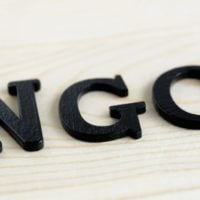Deadline: 15-Jul-25
A new funding opportunity has been launched for diaspora organizations based in Germany. This special initiative supports small-scale projects that focus on training and labor migration pathways—whether to Germany, the EU, or within the region. The goal is to foster responsible migration and integration by drawing on the unique role diaspora communities play in bridging their countries of origin with Europe.
The initiative encourages innovative projects that align with broader development goals. These projects are expected to offer honest, real-world guidance about professional integration and everyday experiences of migrants. Diaspora groups are seen as trusted voices and key players in this mission.
Applicants can receive funding of up to 49,500 Euros to implement their projects. Eligible activities may include awareness campaigns about legal migration channels, job market requirements, or opportunities for professional training. This could involve hosting counseling services, organizing networking events, or launching targeted information efforts.
Training initiatives are also welcome, especially those that build skills aligned with in-demand job sectors in Germany or Europe. Practical workshops, CV preparation, intercultural communication, and employability support are encouraged. Partnerships with private companies—either in Europe or the country of origin—are viewed favorably, particularly when they involve training centers, employers, or local institutions.
Diaspora-led efforts to strengthen institutions in their countries of origin are also within scope. These can include helping national bodies better manage labor migration, building institutional capacity, or fostering new collaborations. Diaspora representatives are expected to work hand-in-hand with their local counterparts.
To be eligible, diaspora organizations must be legally registered in Germany, demonstrate nonprofit status, and have at least 50% of their board or membership composed of individuals with migration histories from the Global South. Proposed projects must be new, not a continuation of existing or past efforts.
Collaborating with a partner organization in the country of origin is mandatory. The project must be co-designed and co-implemented, ensuring sustainable local impact. These partners must be legal nonprofit entities, though government institutions active in labor migration can also qualify.
Projects are not eligible for funding if they focus solely on humanitarian aid, infrastructure development, loan repayment, or the transport of in-kind donations from Germany. Proposals must clearly outline how they will manage ongoing costs beyond the funding period.
This is a rare opportunity for diaspora organizations to strengthen migration systems, empower communities, and support ethical pathways to employment and training—both in Europe and at home.
For more information, visit Diaspora2030.









































